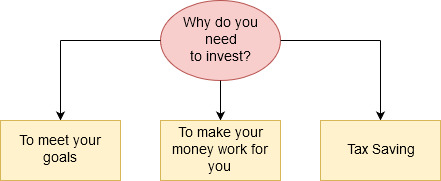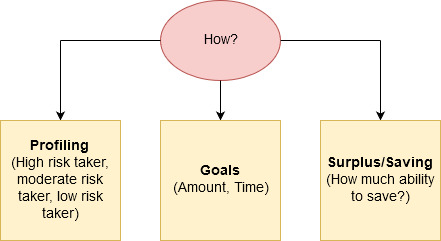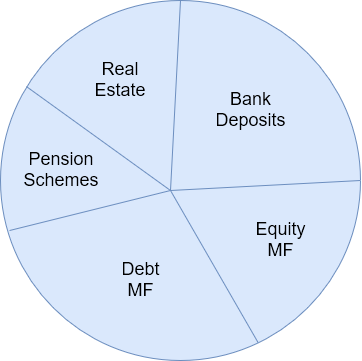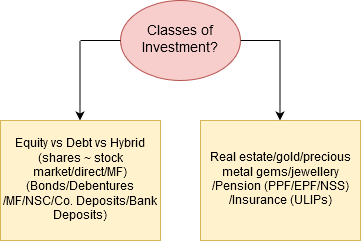MAKE YOUR MONEY WORK FOR YOU
Just ten minutes spent here can help you understand the investment world better; in turn helping you to grasp some of the fundamentals of wealth management.
WHY DO YOU NEED TO INVEST?
You need to invest to meet your goals, to make your money work for you and to save tax.
01
To meet goals
You need to invest to achieve goals such as buying a house or car, going on a vacation or holiday or planning for retirement.
02
To make my money work for me
You need to invest because idle money loses value. Letting it lie in your savings account causes inflation to have huge negative effects on your hard-earned money. Put your money to work and make sure each rupee counts.
03
Tax Saving
Why waste an opportunity to save money? Without much effort, a considerable amount of tax saving is possible. Once you get a hang of where tax can be saved under sections such as 25 and 80C of the income tax act, you will have understood a key part of how to invest your hard-earned money.
HOW? THE STRATEGY OF INVESTING
How much do you need to invest? How much can you invest? Where should you invest? To find out the answers to this, you must first ask yourself the following:
01
Profiling
Are you a high-risk taker, moderate risk taker or low risk taker? Read on to find out more about profiling and risk taking.
02
Goals
To fulfill your goals, you need to calculate how much you need to save and for what duration. According to your goals mentioned above, figure out the amount of money that needs saving. A house may cost much more than a vacation to Goa. Here both the amount and time are functions of the rate of return and the power of compounding. To understand more about this read our section on the power of compounding.
03
Surplus/Savings
The ability to invest depends in your capacity to save and in turn your income. How much of your income can you save? No matter what the amount is, there is always scope for some investment possible.
CLASSES OF INVESTMENT
Where can I invest? Which investment classes have more risk? Which investment classes have fixed returns? To answer these questions, we can broadly divide the classes of investment into two categories:
01
Equity vs. Debt
Equity refers to HIGH RISK, HIGH REWARD POTENTIAL investments in shares (stock market) and mutual funds. Debt refers to LOW RISK, LOW (BUT FIXED) RETURN investments made in bonds, debentures, mutual funds, national savings certificate, company deposits and bank deposits. You can also make HYBRID investments based varying percentages of equity and debt based on your risk profile.
02
Other investment classes
Real estate/ gold + precious metal gems + jewellery/ Pension (PPF/EPF/NSS)/ Insurance (ULIPs)
(PPF – Public Provident Funds, EPF – Employees Provident Fund, NSS – National Pension Scheme, ULIPs – Unit Linked Insurance Plan)
SUMMARY




Disclaimer: The contents of this page do not constitute investment advice. Please contact your authorised investment advisor before making any investments or acting upon the contents of this page.
